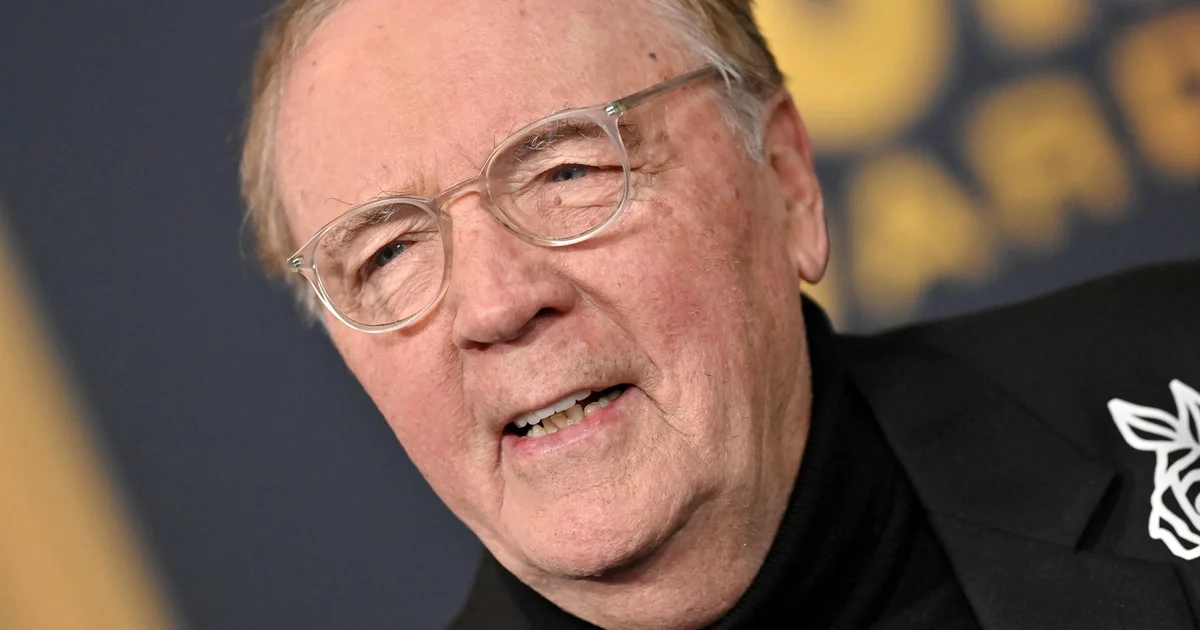In the ever-challenging world of publishing, where thousands of hopefuls dream of finishing their novels but few manage to get published, bestselling author James Patterson is stepping in with a bold initiative. Known as one of the most commercially successful authors of all time, Patterson has announced that he will be offering emerging writers financial grants of up to $50,000 to help them complete their novels. This program is not just about money—it is about removing the barriers that often stand in the way of aspiring storytellers and giving them the opportunity to focus fully on their craft. The move has sparked widespread discussion in literary circles, with many calling it a potential game-changer for the next generation of writers.
- Who Is James Patterson and Why His Initiative Matters
- The Financial Barriers of Novel Writing
- How the Patterson Program Works
- Impact on the Publishing Industry
- Encouraging Diversity in Storytelling
- Reactions from the Writing Community
- Expert Insights on the Importance of Funding Writers
- The Legacy Patterson Hopes to Leave
- Frequently Asked Questions
- What is James Patterson offering to emerging writers?
- How can writers apply for the Patterson grants?
- Why is this initiative significant for the publishing industry?
- Will the grants only support one writer?
- What impact could this have on future writers?
- Conclusion
Who Is James Patterson and Why His Initiative Matters
James Patterson is not just another novelist—he is a publishing powerhouse. With more than 425 million copies of his books sold worldwide, Patterson has become a household name in crime, thriller, and young adult fiction. His works, including the Alex Cross, Women’s Murder Club, and Michael Bennett series, have consistently topped bestseller lists. Beyond his own success, Patterson has long been an advocate for literacy, education, and the promotion of new voices in writing.
This initiative fits naturally into his broader mission of nurturing creativity. For years, Patterson has funded scholarships for teachers, donated millions to school libraries, and even created programs to encourage children to read. By extending his philanthropic focus to emerging novelists, he is addressing one of the biggest hurdles in the literary world: the financial strain that prevents many talented individuals from finishing their manuscripts.
The Financial Barriers of Novel Writing
Writing a novel is a labor-intensive and time-consuming pursuit. On average, it can take writers months, if not years, to produce a polished manuscript. Many emerging authors juggle full-time jobs, family responsibilities, and financial burdens that limit the time they can dedicate to writing. Unlike established authors, they rarely have advances, royalties, or book deals to fall back on.
Industry surveys suggest that the majority of writers make less than $10,000 per year from their creative work, with a large percentage earning nothing at all. This economic reality forces many to abandon their novels halfway or put them on indefinite hold. Patterson’s offer of grants up to $50,000 could allow a writer to take time off work, pay for necessary resources like editing software, attend workshops, or simply cover living expenses while dedicating themselves fully to their book.
How the Patterson Program Works
While details of the program vary depending on application guidelines, the concept is simple: writers will submit their unfinished manuscripts, proposals, or writing samples to be considered for funding. Those selected could receive grants ranging from smaller amounts for part-time support to larger awards of up to $50,000 for full financial backing.
The initiative is not structured as a competition with a single winner but as a support system for multiple voices. This inclusivity is key, as Patterson’s stated goal is to diversify the literary market by giving writers from different backgrounds, cultures, and genres the chance to be heard.
Impact on the Publishing Industry
Patterson’s initiative arrives at a time when the publishing industry is both thriving and struggling. On one hand, global book sales continue to be strong, particularly in digital and audiobook formats. On the other hand, new authors face unprecedented challenges breaking into the market. Self-publishing platforms like Amazon Kindle Direct Publishing have given writers opportunities, but they also flood the market with millions of titles, making it harder for quality work to stand out.
By funding writers directly, Patterson is not just supporting individuals but also strengthening the industry as a whole. A finished manuscript has far greater chances of attracting an agent or publisher. Moreover, this initiative may inspire other wealthy authors, publishers, or organizations to invest in emerging talent, creating a ripple effect that benefits the entire literary ecosystem.
Encouraging Diversity in Storytelling
One of the most powerful aspects of this program is its potential to amplify marginalized voices. Many writers from underrepresented backgrounds struggle to secure book deals, often due to systemic barriers in publishing. Patterson’s grants could level the playing field by allowing these voices to thrive without financial constraint.
Literary scholars have long argued that diverse storytelling strengthens literature by providing new perspectives and cultural depth. From immigrant narratives to stories rooted in underexplored communities, these works not only enrich readers but also build empathy and global understanding. Patterson’s initiative can therefore be seen as both an artistic and social contribution.
Reactions from the Writing Community
The news has been met with enthusiasm from both established and aspiring writers. Authors have praised Patterson for “putting his money where his mouth is,” highlighting his long-standing advocacy for writers. Writing organizations see this as validation of their own efforts to secure better support for emerging talent.
Some critics, however, have raised concerns. They argue that while grants are helpful, the industry also needs structural reforms, such as fairer royalty rates, better marketing opportunities for debut authors, and more accessible publishing pathways. Nonetheless, even critics acknowledge that Patterson’s move shines a spotlight on the challenges new writers face and may ignite broader change.
Expert Insights on the Importance of Funding Writers
Publishing experts emphasize that financial support is one of the most effective ways to nurture creative work. According to a study by the Authors Guild, more than 50% of writers reported that financial constraints directly hindered their ability to write. By removing this burden, grants like Patterson’s allow writers to focus on quality and innovation rather than survival.
Literary agent Janet Reid once noted that “the best stories often die not because they lack merit, but because their authors lack the time or money to finish them.” Patterson’s initiative directly addresses this dilemma, ensuring more stories reach completion and, eventually, publication.
The Legacy Patterson Hopes to Leave
James Patterson has already built a legacy as one of the most successful writers in modern history. However, his philanthropic efforts reveal a deeper mission: to be remembered not just for his books but for his impact on readers and writers alike. By investing in the next generation of storytellers, Patterson ensures that the literary world continues to thrive long after his own career.
This initiative could become a cornerstone of his legacy, setting a precedent for how successful authors can give back to the community that supported them. For emerging writers, the grants could mean the difference between an unfinished draft gathering dust and a published novel inspiring thousands.
Frequently Asked Questions
What is James Patterson offering to emerging writers?
James Patterson is offering financial grants of up to $50,000 to help emerging writers complete their novels. The initiative aims to reduce the financial barriers that prevent authors from dedicating time and resources to finishing their manuscripts.
How can writers apply for the Patterson grants?
While specific guidelines may vary, writers are typically required to submit samples of their work, unfinished manuscripts, or project proposals. Applications will be reviewed, and multiple writers will be selected to receive funding.
Why is this initiative significant for the publishing industry?
It addresses one of the biggest challenges faced by new authors—financial instability. By supporting writers directly, Patterson is increasing the likelihood that diverse and high-quality novels will be completed and eventually published.
Will the grants only support one writer?
No, Patterson intends to support multiple writers. The program is designed to spread resources across different voices, genres, and backgrounds, amplifying diversity in literature.
What impact could this have on future writers?
This initiative could inspire other authors, organizations, and institutions to fund emerging talent, creating a broader system of support. It also gives hope to new writers who might otherwise abandon their work due to financial struggles.
Conclusion
James Patterson’s decision to offer emerging writers up to $50,000 to complete their novels represents more than just financial generosity—it is a statement about the future of literature. In a time when aspiring authors face unprecedented challenges, Patterson is using his influence and resources to nurture creativity, amplify diverse voices, and strengthen the publishing industry. This initiative not only gives writers the chance to finish their books but also ensures readers around the world will have access to fresh, compelling, and innovative stories. For Patterson, it is an extension of his lifelong mission to champion literacy and storytelling. For the next generation of writers, it may very well be the lifeline they need to turn their dreams into reality.











